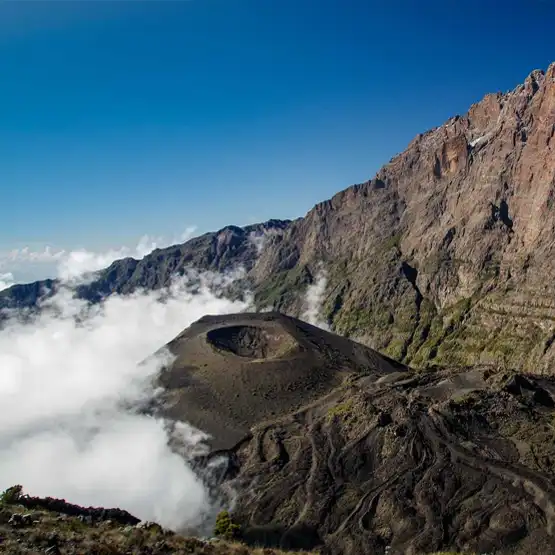Have you ever wondered what it’s like to Step back in time and experience a way of life almost untouched by modern civilization? Visiting the Hadzabe tribe in Tanzania offers a rare glimpse into one of the world’s last remaining hunter-gatherer societies. One might think a brief visit is enough, but to truly appreciate their deep connection with nature and ancient traditions, a more immersive experience is essential.
Spending at least a few days allows you to participate in their daily activities, such as hunting with bows and arrows, foraging for wild fruits, and hearing ancestral stories around the fire. The Hadza people’s resilience and adaptation over 10,000 years is an invaluable lesson in sustainability and survival. Research suggests that many visitors find a minimum of three to four days sufficient to develop a genuine appreciation of their intricate, minimalist way of living.
Exploring the Recommended Duration for Visiting the Hadzabe Tribe with Kilisa Tours
Visiting the Hadzabe tribe with Kilisa Tours offers a unique opportunity to experience a traditional way of life. Many travelers find that spending three to four days is ideal for an immersive experience. This length of time allows visitors to fully engage with the tribe’s daily activities and gain a deeper understanding of their customs and traditions. Shorter visits may not provide enough time to appreciate the complexities of their lifestyle. According to the article, longer visits can enhance the overall experience.
During your stay, you’ll have the chance to join the Hadzabe in their hunting and gathering routines. Participating in these activities offers a hands-on approach to learning about their resourcefulness and connection to nature. By spending a few days, you can also enjoy storytelling sessions by the fire, which are integral to preserving their oral history. This immersive approach allows you to see beyond the surface and understand their values and beliefs more intimately.
When planning your visit with Kilisa Tours, it’s important to consider that the Hadzabe are one of the last remaining hunter-gatherer tribes in the world. Their way of life has remained relatively unchanged for thousands of years. To respect and support their culture, responsible tourism practices are essential. Spending an appropriate amount of time ensures that your visit is meaningful and contributes positively to their community. Here is the article that provides more insights on this topic.
Furthermore, Kilisa Tours offers various packages tailored to different durations and interests. Whether you’re an adventurous traveler or someone keen on cultural exchanges, they have options to suit your needs. Choosing the right duration for your visit will depend on your interest in deeply exploring the Hadzabe culture. For those interested in eco-tourism and cultural preservation, a longer stay might be more rewarding.
Understanding the Unique Lifestyle of the Hadzabe Tribe
The Hadzabe tribe, located in Tanzania, is one of the last true hunter-gatherer societies in the world. Their lifestyle revolves around hunting animals and foraging for wild fruits, which has sustained them for thousands of years. Unlike agricultural societies, the Hadzabe live a nomadic life, moving according to the seasons and availability of resources. This nomadic nature allows them to live in harmony with their environment. Their diet mainly consists of meat, honey, berries, and tubers.
One of the most fascinating aspects of the Hadzabe culture is their deep connection to nature. They use traditional methods, such as bows and arrows for hunting. Their knowledge of the land and its resources is passed down through generations. This knowledge includes identifying edible plants, tracking animals, and understanding the behavior of wildlife. Such skills are essential for their survival and are a testament to their adaptability and resilience.
The Hadzabe also have a rich oral tradition, with stories and songs that convey their history and beliefs. These stories are shared around the campfire, serving as a way to teach the younger generation about their heritage. Their language, Hadzane, is unique and unrelated to any other language in the world. It includes a series of clicks and sounds that are distinctive and complex. According to the article, preserving their language and culture is crucial for maintaining their identity.
The social structure of the Hadzabe tribe is egalitarian, meaning there are no formal leaders or hierarchies. Decisions are made collectively, and everyone has an equal say. This cooperative way of life fosters strong community bonds and mutual support. The tribe’s ability to live sustainably off the land offers valuable lessons on conservation and resource management. Spending time with the Hadzabe can provide profound insights into a way of life that is becoming increasingly rare.
Why Immersion is Key to Appreciating Hadzabe Culture
Immersion is crucial to fully appreciate the rich culture of the Hadzabe tribe. Spending time with them allows visitors to engage in their daily routines and understand their way of life. By participating in their activities, such as hunting and gathering, one grasps the depth of their survival skills. This hands-on learning fosters a stronger connection and respect for their ancient traditions. It’s more than just observing; it’s about experiencing their life firsthand.
When visitors immerse themselves in the Hadzabe culture, they gain valuable insights into their unique social structure and values. The tribe’s egalitarian system showcases their cooperative nature and mutual respect. Engaging with their storytelling around the campfire offers a glimpse into their oral traditions and historical narratives. This deep interaction helps visitors appreciate the significance of their heritage. Understanding these aspects is essential for truly valuing their cultural richness.
Moreover, immersion facilitates meaningful exchanges and mutual learning. Visitors can share their own experiences and knowledge, creating a two-way educational exchange. This interaction promotes cultural appreciation and understanding from both sides.
- Learning traditional hunting techniques
- Participating in foraging for food
- Engaging in their storytelling sessions
- Observing their egalitarian decision-making process
Finally, the immersive experience allows visitors to witness the Hadzabe’s profound connection with nature. Observing their sustainable living practices provides valuable lessons in conservation and environmental stewardship. By understanding their harmonious relationship with the land, visitors can better appreciate their wisdom in resource management. Immersion not only enriches the visitor’s experience but also supports the preservation of Hadzabe culture. This connection is vital for fostering global awareness and respect for indigenous ways of life.
Activities You Can Experience During Your Stay
During your stay with the Hadzabe tribe, you will get to participate in traditional hunting expeditions. Armed with bows and arrows, you can join the Hadzabe men as they track and hunt small game. It’s an exciting, hands-on experience that showcases their incredible tracking skills and speed. This activity is both educational and thrilling, offering a rare insight into their hunter-gatherer lifestyle.
Foraging for wild fruits and tubers is another activity that visitors can engage in. Guided by the Hadzabe women, you will learn to identify edible plants and discover the nutritional sources that sustain the tribe. This not only provides practical knowledge about local flora but also helps in understanding their deep connection with the environment. The activity highlights how they maintain a balanced diet through natural means. You’ll get to taste some of these wild fruits.
Storytelling around the campfire is a cherished activity that allows visitors to hear the rich oral histories of the Hadzabe. Gathered under the stars, you will listen to tales that have been passed down through generations. These stories often include lessons about the land, animals, and the tribe’s ancestors. This communal sharing of stories is a key part of their cultural heritage. It offers a deeper appreciation of their history and values.
Visitors can also try their hand at making traditional jewelry and crafts. The Hadzabe use natural materials like beads, seeds, and feathers to create beautiful adornments. This activity not only showcases their artistic skills but also provides a hands-on understanding of their daily life. Making these crafts can be a relaxing and enjoyable experience, allowing you to take home a piece of Hadzabe culture.
Observing their egalitarian decision-making process is another enlightening experience. You will witness how the tribe makes decisions collectively, emphasizing equality and cooperation. This is an opportunity to see firsthand how their social structure operates without formal leaders. It offers insights into their values of mutual respect and community. Visitors often find this aspect of their culture both fascinating and inspiring.
Lastly, participating in traditional dances and songs is a joyful way to end your day. These performances are not only entertaining but also serve as a form of storytelling and cultural expression. They provide a lively and memorable conclusion to your immersive cultural experience with the Hadzabe. Joining in on the dances adds to the sense of connection and celebration. It’s a fun and engaging way to bond with the tribe.
Optimal Duration for Educational and Cultural Exchange
Determining the optimal duration for an educational and cultural exchange with the Hadzabe tribe depends on what you aim to achieve. A stay of at least three to four days is recommended to gain a meaningful understanding of their way of life. This period allows visitors to immerse themselves in daily activities and observe their unique traditions firsthand. For a deeper educational experience, longer stays can be even more beneficial.
During a three to four-day visit, you can engage in various activities that highlight the tribe’s survival skills. These include hunting, gathering, storytelling, and learning about their unique social structure. Each day offers a different aspect of their culture, providing a well-rounded experience. This duration ensures enough time to build connections with the tribe members. Below is a list of suggested activities for a typical stay:
- Day 1: Introduction and familiarization with the tribe
- Day 2: Participating in hunting and gathering activities
- Day 3: Engaging in storytelling and cultural discussions
- Day 4: Learning about traditional crafts and jewelry making
For those with a keen interest in cultural preservation, extending the visit to a week or more can offer additional insights. Longer stays promote a more in-depth exchange of knowledge and foster closer relationships. This can be particularly valuable for researchers or educators. Extended visits also allow for a greater contribution to the tribe through volunteer work or conservation efforts.
Regardless of the length of stay, it’s crucial to approach this experience with respect and a willingness to learn. The Hadzabe tribe’s lifestyle is vastly different from modern urban living, and understanding this requires time and patience. Longer stays enhance the opportunity for authentic interaction. It is through these extended periods of immersion that one can truly appreciate their sustainable way of life.
The Impact of Your Visit on the Hadzabe Community
Your visit to the Hadzabe community can have a significant and positive impact. Responsible tourism brings economic benefits to the tribe, allowing them to improve their living conditions. However, it is essential to follow ethical guidelines to ensure that your presence is respectful and does not disrupt their lifestyle. Spending money within the community, such as buying handmade crafts, directly supports their economy.
Aside from economic benefits, your visit can also foster cultural exchange and mutual learning. The Hadzabe people can share their knowledge and traditions while learning about your perspective. This exchange helps in preserving their culture and promoting global understanding. By engaging in their daily activities, you contribute to keeping their traditions alive. It is a rewarding process for both visitors and the tribe.
It’s crucial to be aware of the environmental impact of your visit. The Hadzabe live sustainably, relying on natural resources for their survival, and it’s important to respect this balance. Avoid leaving any waste behind and follow their practices to minimize your ecological footprint. This mindful approach ensures that their land remains pristine for future generations. Educating yourself about eco-friendly practices contributes to this goal.
Your engagement can also inspire others to learn about and support the Hadzabe tribe. By sharing your experiences, you raise awareness about the importance of preserving indigenous cultures. Social media, blogs, and word of mouth can be powerful tools for advocacy. Sharing stories and photos from your trip can highlight the unique aspects of Hadzabe life. This encourages others to visit responsibly and support the community.
Finally, the relationships you build during your visit can have lasting effects. Positive interactions foster goodwill and trust, which are essential for long-term cultural exchange. These connections can lead to continued support and collaboration between visitors and the tribe. Maintaining contact and showing ongoing interest in their well-being reinforces these bonds. Your visit is not just a one-time experience but can lead to lasting friendships and mutual respect.
Planning Your Visit: Practical Tips and Considerations
When planning your visit to the Hadzabe tribe, it’s essential to be prepared and respectful. Start by researching and selecting a reputable tour operator, such as Kilisa Tours, that prioritizes ethical tourism. This ensures that your visit benefits the community and leaves a positive impact. Booking in advance can help secure your spot, as tours may have limited availability.
Make sure to pack appropriately for the journey. Bring comfortable clothing suitable for outdoor activities and variable weather conditions. Don’t forget essentials like insect repellent, sunscreen, and a hat for sun protection. It’s also wise to carry reusable water bottles to stay hydrated while minimizing plastic waste. Preparing a small first aid kit is advisable as well.
Respecting the cultural norms of the Hadzabe tribe is crucial during your visit. Always ask permission before taking photos of people or their habitat. Avoid bringing or gifting items that could disrupt their traditional way of life. Instead, support them by purchasing handmade crafts from local artisans within the community. Following these guidelines helps maintain mutual respect.
Consider getting vaccinations or medications recommended for travel to Tanzania. Consulting with your healthcare provider will ensure you have the necessary immunizations and health precautions in place. It’s also essential to have comprehensive travel insurance covering medical emergencies, trip cancellations, and any unforeseen circumstances.
Your visit can be enhanced by learning a few phrases in Hadzane, the language of the Hadzabe tribe. Simple greetings or expressions can go a long way in building rapport with tribe members. Guides often provide basic translations but showing effort promotes cultural appreciation. This small step fosters meaningful connections during your stay.
- Select an ethical tour operator
- Pack suitable clothing and essentials
- Respect cultural norms
- Get necessary vaccinations
- Learn basic phrases in Hadzane
Finally, approach this experience with an open mind and willingness to learn from a way of life vastly different from your own. This attitude will enrich both your journey and interactions with the Hadzabe people. It allows for genuine exchanges that leave lasting impressions on all involved.
Why Choosing the Right Tour Operator Matters
Selecting the right tour operator is essential when planning your visit to the Hadzabe tribe. A reputable operator, like Kilisa Tours, ensures that your trip is conducted ethically and responsibly. This means that the community benefits directly from tourism without disrupting their way of life. Ethical operators are committed to preserving the culture and environment of the Hadzabe tribe. They prioritize sustainability and respectful interactions.
Working with a trustworthy tour operator also enhances your overall experience. Reputable operators provide knowledgeable guides who are familiar with the Hadzabe culture and customs. These guides can offer deeper insights and answer questions, enriching your understanding of the tribe. They help facilitate authentic interactions and ensure that your stay is educational and respectful. This guidance makes your visit more meaningful and memorable.
Safety is another critical factor to consider when choosing a tour operator. Reliable operators follow established safety protocols, ensuring that all activities are conducted safely. They are prepared for emergencies and have plans in place to handle unexpected situations. This attention to safety allows you to enjoy your visit with peace of mind. Trustworthy operators also provide proper transportation and accommodations.
Choosing the right operator also supports the local economy more effectively. Ethical tour operators often work with local businesses and artisans, ensuring that the financial benefits of tourism are distributed within the community. This support helps sustain the Hadzabe tribe’s traditional lifestyle. It also promotes cultural preservation by providing them with resources to maintain their heritage.
- Ensure ethical and responsible tourism
- Provide knowledgeable guides
- Follow safety protocols
- Support the local economy
- Promote cultural preservation
Lastly, choosing an operator like Kilisa Tours guarantees that your visit is organized and stress-free. They handle logistics, from permits to travel arrangements, allowing you to focus on the experience. Their expertise ensures that you make the most of your time with the Hadzabe tribe. With the right tour operator, your visit becomes a rewarding, enriching journey into a unique cultural experience.






